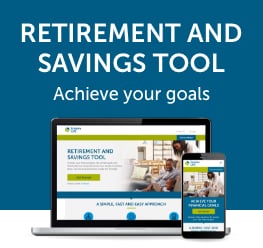
At the risk of sounding nitpicky, governments don’t pay for anything. Working Canadians do. Taxpayers do. Taxes are directed to certain areas of need. Growing needs and rising costs means that there isn’t enough public money to go around. That reality is hitting retirees and will hit them harder as time goes on.
Retirement myth #8: The government will take care of any medical expenses
We hear a lot about cutbacks on services, whether it’s in a hospital or government health care. All expenses are not covered. Many caregivers as well as the sick and disabled learn that the hard way. You’re on the hook for those extras, like medications, home care and treatments that can make you well, keep you fit and preserve some dignity, control and independence.
Our rapidly aging society is backing governments into a corner where they are making tough decisions on health care. It seems that there are already too many older people to care for with existing programs and funding.1 Absolute costs have been increasing and services have been cut back (think about provincial health care coverage alone and lack of funding for services for elders noted above).2 Get used to it. You are going to have to channel more income into paying for uncovered services or eat into your long-term savings to take care of yourself and your aging family. Our society is moving quickly from child care issues to elder care issues. And the latter issue is much more expensive and long lasting. The movement now is pushing care out into the community. That sounds good and has some merits. But long-term care is not free. Much of it is provided by family. It’s voluntary. It means sacrifices of energy, time out of the workforce and hits to the retirement savings plans of caregivers. The government is not picking up the tab.
© 2020 by Peter A. Wouters. Republished with permission by Peter Wouters. For the complete list of articles, please visit here.
Related articles:
Ten retirement myths series: Myth #10
Ten retirement myths series: Myth #9
Ten retirement myths series: Myth #7
Ten retirement myths series: Myth #6
Ten retirement myths series: Myth #5
Ten retirement myths series: Myth #4
Ten retirement myths series: Myth #3
Ten retirement myths series: Myth #2
1 Access to medical care even a family doctor getting harder. Age and health play factors in physician's preparedness to take on patients as they juggle workloads and costs. ref: Long Term Care Issues, 1-5.2-5.4, 10, 11.6, Elder Planning Counselor Program.
2 Ibid; Specific issues facing older persons, Ontario Human Rights Commission; The State of Seniors Health Care in Canada, 2016.
This material is presented for informational purposes only, and is not a legal, tax or investment opinion. The provision of the information contained herein and any oral or written communication regarding the same should not nor is intended to be construed as such. Interested persons should seek retained independent professional advice before acting or foregoing action in relation to any of the matters mentioned herein reflected as of the date published or updated.
This blog reflects the views of the author as of the date stated. This information should not be considered a recommendation to buy or sell nor should it be relied upon as investment, tax or legal advice. Empire Life and its affiliates does not warrant or make any representations regarding the use or the results of the information contained herein in terms of its correctness, accuracy, timeliness, reliability, or otherwise, and does not accept any responsibility for any loss or damage that results from its use.
June 2020

